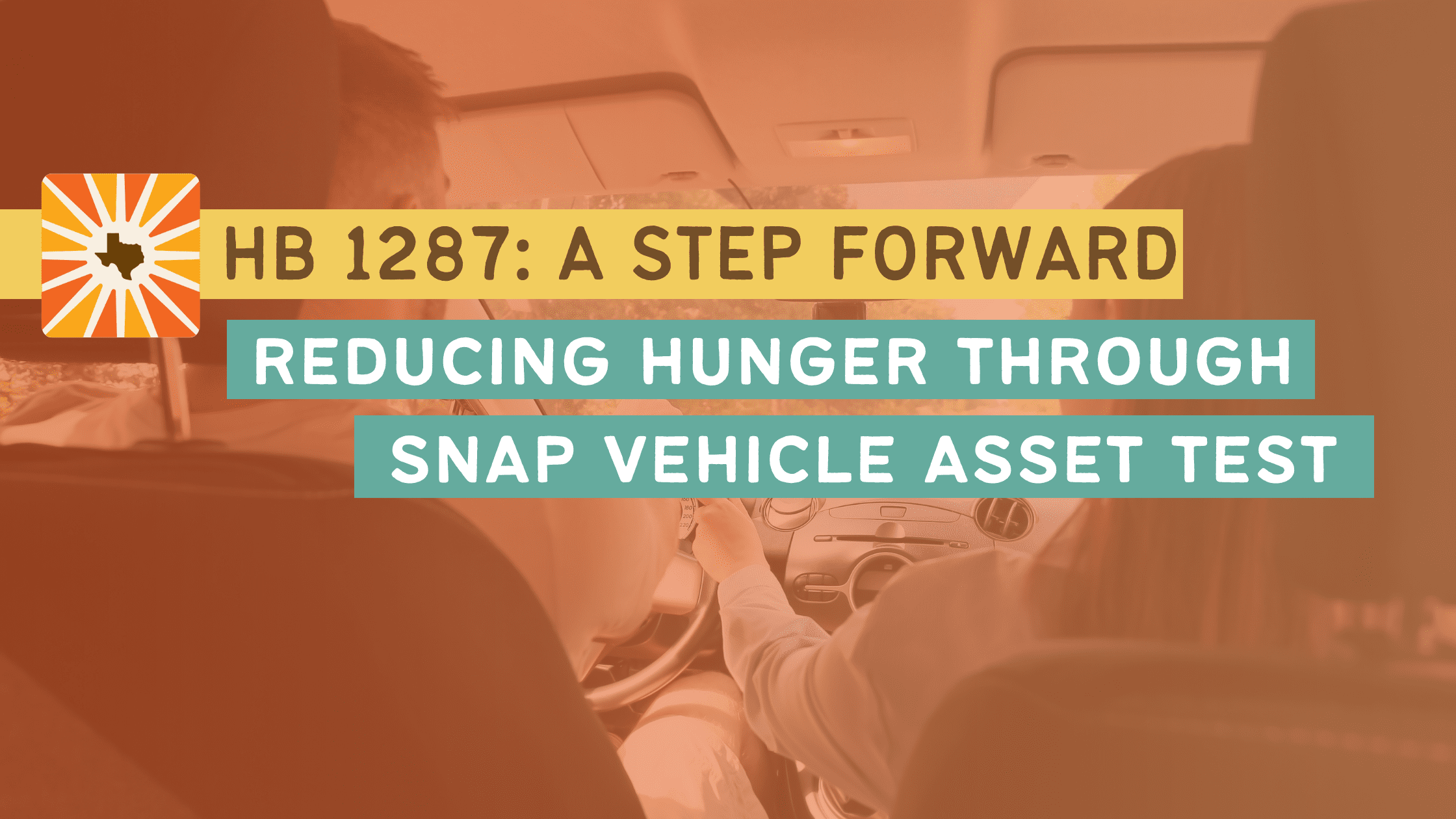The Supplemental Nutrition Assistance Program (SNAP) acts as a buffer against hunger for low-income working families, seniors, and people with disabilities by supplementing their food budgets and making it possible for struggling Texans to buy enough food for a basic diet.
HB 1287 took effect on September 1, 2023, with overwhelming bipartisan support in both chambers thanks to the efforts of Representative Ryan Guillen and Senator César Blanco. The bill updates Texas’ SNAP Vehicle Asset Test (VAT) to $22,500 for first vehicles and $8,700 for each additional vehicle. Every Texan has prioritized updating SNAP vehicle limits for several sessions and we thank the tireless advocacy of our partners Feeding Texas, AARP, and the other members of the Texas Food Policy Roundtable for helping us obtain this win.
While SNAP benefits are federally funded, states can set eligibility rules. Unlike the 38 states that do not count assets, Texas chooses to impose a VAT on all SNAP applicants in addition to income limits. In 2001, Texas set a resource limit of $5,000 in countable cash, a first vehicle worth up to $15,000, and any additional vehicles could be worth up to $4,650 (any excess vehicle value counts towards the cash resource limit). Those limits were never indexed to inflation, so they’ve lost purchasing power over the decades and no longer reflect the cost of safe and dependable family cars or trucks.
The outdated VAT also jeopardized Texans’ ability to meet the state requirement that most adults must work (or be looking for work) through the SNAP Employment & Training (SNAP E&T) program for at least 30 hours per week to receive benefits. The vast majority of Texans must drive to work, and maintaining steady employment requires owning a vehicle capable of passing the state’s rigorous inspection system. With the average new car costing around $48,000, it’s nearly impossible to find a car or truck under $5,000 that will get you to work reliably.
Thousands of Texans who met all other program requirements, particularly two-parent and multi-generational families with second vehicles, were disqualified from SNAP each month because of the state’s low vehicle limits – even Texans with little to no income to buy food. In FY 2022, 65,000 households were denied SNAP simply because they exceeded the vehicle limits.
The new vehicle limits – $22,500 for first cars and $8,700 for additional cars – are still modest, but a significant improvement. The cash limit for SNAP was not part of the bill and remains $5,000. Implementing HB 1287 will help thousands of Texans, including families with young children and the elderly, facing hunger every month only because they need a car to survive.
